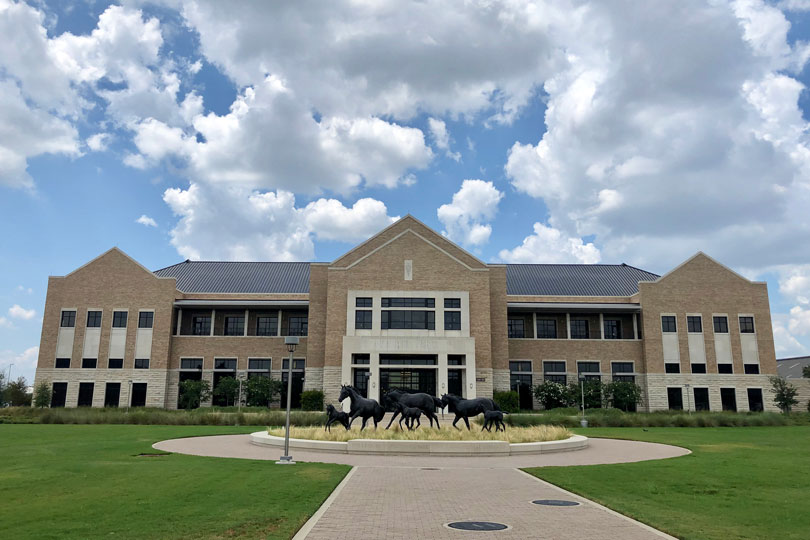By Julie Tomascik
Editor
Animal agriculture is a large part of the Lone Star State, and farmers and ranchers need access to quality animal expertise and the willing hand of a professional when help is required. With fewer veterinary graduates heading to rural areas, sometimes that becomes challenging.
One way for students to gain experience with food animal production is through internships between semesters.
To help ease the financial burden on veterinary students who seek further experiences and education with food animal species, Texas Farm Bureau (TFB) established the Veterinary Assistance Program in 2013.
“Farmers and ranchers all across the state need access to practitioners,” TFB President Russell Boening said. “We know veterinary school is expensive and time consuming. So to help encourage students to spend more time on food animal medicine during their internship opportunities, we created an assistance program to help relieve financial pressure and get them out in the field.”
This summer, six students in their final year of veterinary school and nine underclassmen were selected through TFB’s program.
The fourth-year students include: Katie Burchfield of Burleson focusing on poultry health; Ryan De Vuyst of Pampa with a dairy concentration; Rebecca Gooder, originally from California with a dairy concentration; Brooke Kehlenbrink of Pearland with a food animal and mixed practice focus; Tyler Mackey of Blum concentrating on beef cattle and mixed practice; and Reagan McAda of Hallettsville concentrating on beef cattle and mixed practice.
Underclassmen recipients include: Brandon Cronin of Shepherd; Caroline Cunningham of Waxhaw; McCalley Cunningham of Goliad; Sydney Herring of Franklin; Christopher Holcombe of Floresville; Anthony Labbe of Manvel; Leddy McBride of Tuscola; Caleb Murphy of Cleburne; and Orville Tucker of Lake Dallas.
Through the program, veterinary students with a food animal interest as part of their summer training are eligible to apply.
The program helps cover the extra costs incurred during internships for underclassmen and externships that are part of fourth-year students’ curriculum.
It reimburses expenses for meals, lodging and travel up to $1,330 while students are away from school but are still receiving hands-on education.
“This is a critical time in their professional training and education,” Boening said. “Our program fosters those vital hands-on experiences in the field and building relationships with food animal veterinarians that will undoubtedly become mentors, as well as a benefit for farmers and ranchers across the state.”
Since the program’s implementation, more than $40,000 has been distributed to 41 veterinary students who participated in summer internships or externships.
“Experts in certain veterinary fields are located all over the country, and these students want to work with and learn from the best,” Boening said. “Helping them get to those places, spend time in those clinics and specialized programs means they’ll bring those skills back to their future communities as veterinarians.”
In a time when food animal medicine is a growing topic among consumers and the agricultural community, veterinarians are an important resource.
“Veterinarians play an important role in our food supply. They help prevent livestock illness, and when therapy is needed, they ensure the correct and safe use of pharmaceutical products,” Boening said. “They also help farmers and ranchers raising those animals to better understand the importance of proper care and preventative measures. Assisting them now is an investment that will help farmers and ranchers in the years to come.”

